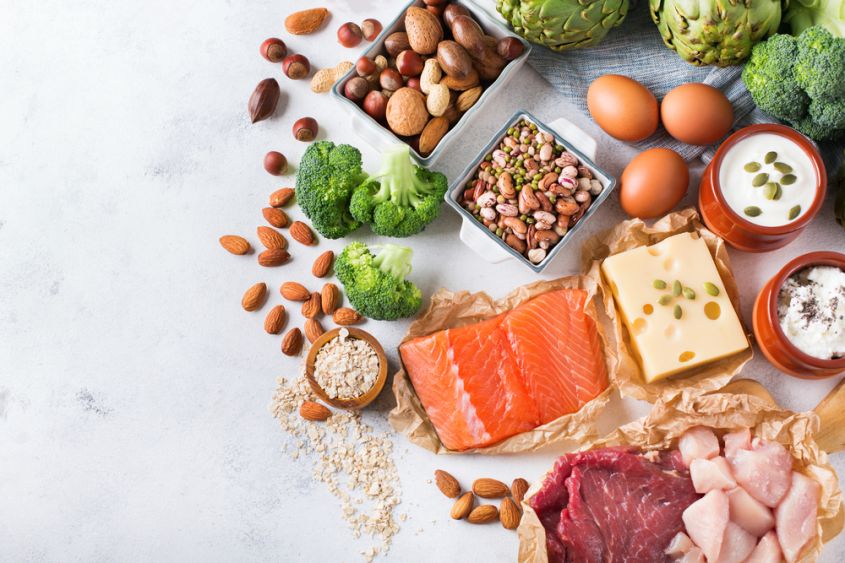
What you eat is important. However, when you eat it, it can be even more important. Do not forget post-workout nutrition.
Why is post-workout nutrition so important?
Generally, post-training nutrition has three objectives :
- Replace glycogen In other words, replenish energy reserves
- Decrease protein breakdown That is, increase the size of the muscle and/or its quality
- Increase protein synthesis to repair any damage during training
By pursuing these goals, your body will benefit from:
- A better recovery
- Less muscle pain
- Increased muscle capacity
- An improvement of the bones
- Use body fat
When we train intensively, we consume a lot of energy and we damage our muscles with micro-breaks of fibers. We achieve our goals when we train intensely in a constant way: we become stronger, thinner, more muscular … However, after exercising, the body needs to recover energy and rebuild the micro-breaks.
To rebuild them a process called protein synthesis occurs. This consists of breaking down damaged old proteins and building new ones. During training, the body breaks down muscle proteins and, at the same time, increases their repair. Therefore, muscle growth will depend on the ratio of synthesis and protein breakdown.
The muscular hypertrophy occurs when you can establish a positive balance of protein during recovery. That is, if in our post-workout nutrition we consume protein, protein synthesis will occur successfully and hypertrophy will occur.
In any case, you should not only take the protein into account, since it is not the only thing that is consumed. This is the case of carbohydrates, our main source of energy, which can be exhausted substantially. Therefore, after exercising we need to consume proteins and carbohydrates.
The nutrients we consume through food or supplements during training and after, are crucial to create the metabolism we desire.
What should you know about nutrition during training?
Availability
In order for our bodies to recover, it is essential to have the necessary nutrients. The availability of these nutrients can be improved in two ways:
- Increasing blood flow. In this way, the nutrients reach the tissues more quickly.
- Providing a dense supply of amino acids and glucose with supplements during and after exercise
If the blood circulates more quickly and we have more nutrients in it, the nutrients will better reach those tissues that need it. As a result, your recovery will be better and faster.
The window of opportunity
Some call this phenomenon of training and post-training “the window of opportunity”.
During this stage, muscles are prepared to accept nutrients that can stimulate muscle repair, muscle growth, and muscle strength. This window opens immediately after exercising and begins to close rather quickly. Although muscle recovery occurs during the following 48 hours, it is recommended to pay attention to what is consumed right after training.
If you pay attention to post-workout nutrition while this window is open, you will get the benefits of those nutrients. If you do not provide enough post-workout nutrients fast enough, storage of muscle glycogen and protein synthesis for muscle recovery decreases.
Consume what your body requires right after training.
What to eat in post-workout nutrition?
As we have mentioned, post-workout nutrition requires two things:
- Protein to help in the synthesis of proteins and thus help muscle recovery. It is recommended to consume approximately 20 grams of protein.
- Carbohydrates to help replenish muscle glycogen levels and charge us with energy again. They also help improve the role of insulin in the transport of nutrients in cells
To acquire these nutrients, one of the options is to make a complete meal that meets the necessary nutritional portions. However, a meal after training is not always practical, as you may not be hungry and, in addition, we want nutrients to be available quickly and, a meal is digested slowly. Alternatively, if we consume these nutrients in liquid form:
- We can accelerate recovery by using insulin as transport of cells
- Digestion and, consequently, the absorption of nutrients, is faster
- The body tolerates it better during and after exercise
In what trainings does it take place?
The protein shake will be of great use to you after a workout with weights, intervals or resistance (lasting 45 minutes or more). While the occasional exercise like going for a walk or riding a bike to work does not require any recovery supplement.
If your goal is to lose fat, you will not need a recovery drink either, since in this case, it is more important to create an energy deficit. Anyway, if the calorie intake is too low and you are training for a long time, the consumption of branched-chain amino acids (BCAA) as a supplement could be useful to avoid muscle wasting.
post-workout nutrition recommendations
With intense workouts, begin by ingesting 30 grams of carbohydrates and 15 grams of protein (in 500 ml of water) per hour of training. You can drink it during training or consume it immediately afterward.
Once you have finished your training, try to make a full meal after one or two hours.
If your priority is to lose weight, use the only BCAAs as a training drink. Eat approximately 5 to 15 grams per hour of training. If you weigh 90 kg or more, ingest 15 grams of BCAAs; If you weigh 90 kg or less, take about 5 grams.
In case of being thin but wanting to lose even more weight, ingest half of the protein and carbohydrate dose or opt for BCAAs.
When choosing carbohydrates, keep in mind that glucose is absorbed faster than fructose. In addition, solutions with high fructose content have been linked to gastrointestinal malfunction, increased fatigue and higher levels of cortisol.
The world of fitness and sports nutrition are two worlds that, at times, can be confusing. However, everything falls to listen to what our body requires so that it is in better conditions.



